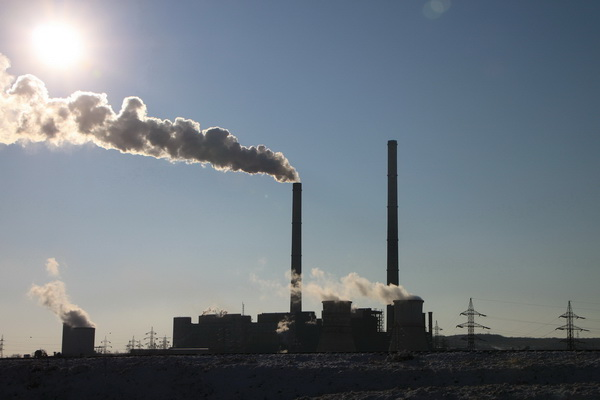News
G20 nations not on track to meet Paris pledges but opportunities are plenty to cut greenhouse gases: UN
NAIROBI, Sept 25 -- G20 nations are collectively not on track to meet their Paris Agreement commitments, but they have huge opportunities to undertake rapid and deep cuts to greenhouse gas emissions, a press release issued by the United Nations Environment Programme, citing new UN research findings, said earlier this week.
An advance chapter of the 2019 Emissions Gap Report, which was released ahead of the UN Secretary-General’s Climate Action Summit on Monday, said that G20 members, which account for around 80 per cent of global greenhouse gas emissions, are not yet taking on transformative climate commitments at the necessary breadth and scale.
The G20 is an international forum for the governments and central bank governors from the European Union and 19 countries including Argentina, Australia, China, India, Indonesia, Japan, Russia, Saudi Arabia, the US and South Africa.
The 2018 Emissions Gap Report showed that around half of the G20 nations’ GHG emissions trajectories fall short of achieving their Nationally Determined Contributions (NDC) under the Paris Agreement. Taken as a whole, the current NDCs are nowhere near enough to meet the 1.5°C or below 2°C temperature goals of the Paris Agreement. This means that the world is still on the path to a catastrophic temperature rise of well over 3°C this century.
However, the advance chapter points to key areas where G20 nations can rapidly step up action when they submit their next round of NDCs in 2020.
“We can only avoid planet-altering climate change with the full commitment of G20 nations to a zero-carbon future. So far, they haven’t done enough” said UNEP Executive Director Inger Andersen. “But the good news is that every G20 nation has an array of nationally appropriate actions available to them to slash their emissions. Combined with strong political and societal support for climate action, there has never been a better opportunity for policymakers to take these actions.”
The full Emissions Gap Report, due for release in late November, will contain a detailed G20 update. The 2018 report said that the G20 would need to cut an extra 2.5 gigatonnes of carbon dioxide equivalent per year by 2030 to meet their unconditional NDCs. For conditional NDCs, the number is 3.5 gigatonnes.
According to the report, nations must at least triple the level of ambition of their current NDCs to have a chance of keeping global temperature rise under 2°C. To keep global temperatures to 1.5°C, they must increase their ambitions fivefold.
The advance chapter looks at what is causing this shortfall, finding that there are serious action gaps in all areas with high potential for emissions reductions:
- Too few countries have committed to net-zero greenhouse gas emission targets;
- Economy-wide climate action remains limited in areas such as ending fossil fuel subsidies, introducing ambitious and comprehensive carbon pricing, and making finance flows consistent with the Paris Agreement;
- Country commitments to fully decarbonize electricity supplies cover less than 1 per cent of global CO2 emissions from electricity generation;
- Countries and states are not setting ambitious targets for industry;
- Commitments to zero net deforestation targets are not being backed with action on the ground.
The 2019 advance chapter states that G20 nations can fill these gaps and reach the ambition levels required by taking advantage of technological and economic developments to decarbonize their economies, maximizing the synergies between climate action and development objectives, and building on a surge of climate action commitments by non-state actors, such as cities and businesses.
For example, renewable energy is the cheapest source of new power generation in most of the world. The costs of installing onshore wind and solar photovoltaic in 2019 are 8 per cent and 13 per cent lower than the International Renewable Energy Agency predicted a year ago. Combined with the falling costs of battery storage, this opens immense possibilities for utility-scale solar power.
--BERNAMA-NNN
Other News
Sarawak Lepasi Sasaran Kapasiti Gabungan Tenaga Boleh Baharu Tahun Ini - Abang Johari

Oleh Nur Ashikin Abdul Aziz
SINGAPURA, 21 Okt (Bernama) -- Sarawak mencapai 62 peratus sasaran campuran kapasiti tenaga boleh baharu (TBB) tahun ini, melepasi sasaran 60 peratus yang digariskan dalam Strategi Pembangunan Pasca COVID-19 (PCDS) 2030.
Sarawak Pacu Pertumbuhan Tenaga Boleh Diperbaharui Untuk Manfaat ASEAN - Premier

SINGAPURA, 21 Okt (Bernama) -- Sarawak komited menyokong peralihan tenaga boleh diperbaharui di Asia Tenggara dengan memanfaatkan potensinya sebagai "Bateri ASEAN," yang akan membekalkan tenaga bersih menerusi sambungan Grid Kuasa Borneo dan ASEAN.
Belanjawan 2025 Percepat Peralihan Kepada Tenaga Bersih - Solarvest

KUALA LUMPUR, 19 Okt (Bernama) -- Belanjawan 2025 merupakan satu langkah ke arah mempercepat peralihan kepada tenaga bersih di Malaysia, kata Solarvest Holdings Bhd.
© 2025 BERNAMA. All Rights Reserved.
Disclaimer | Privacy Policy | Security Policy This material may not be published, broadcast,
rewritten or redistributed in any form except with the prior written permission of BERNAMA.
Contact us :
General [ +603-2693 9933, helpdesk@bernama.com ]
Product/Service Enquiries [ +603-2050 4466, digitalsales@bernama.com ]
